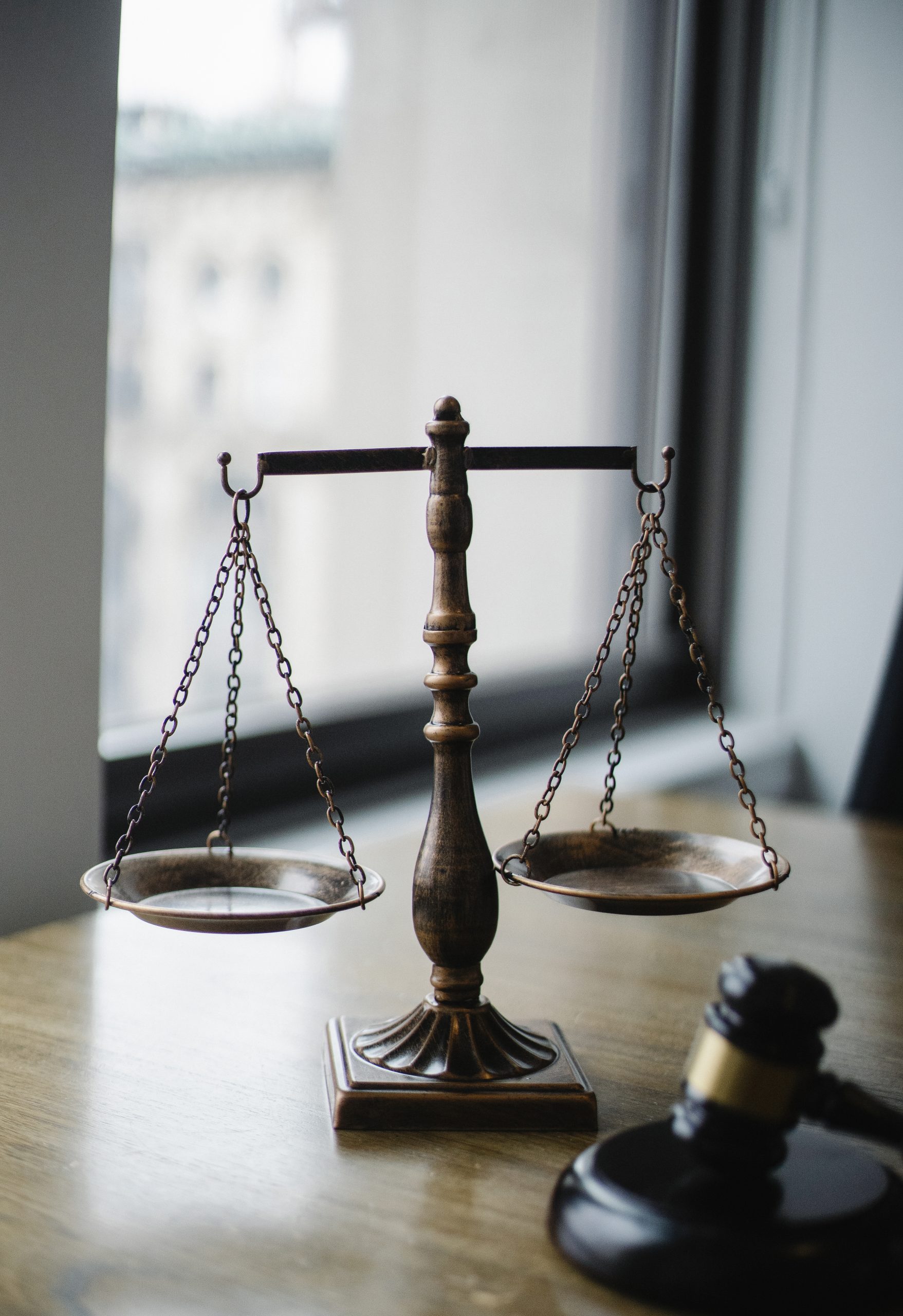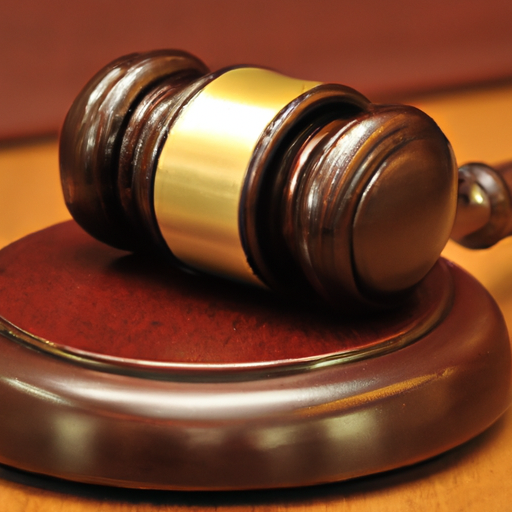In the world of criminal law, the role of the defendant is of utmost importance. As a defendant, your freedom, reputation, and future hang in the balance, making it crucial to understand the complex legal landscape you find yourself in. This article aims to unravel the intricacies surrounding criminal charges, providing you with valuable insights and guidance. By examining frequently asked questions and providing concise answers, we will shed light on critical aspects of your case. Through compelling case studies and relatable scenarios, we will demonstrate our expertise and experience, reassuring you and instilling confidence in our ability to offer strong representation. Our blog posts are not only informative but also optimized for search engines, ensuring that you can easily access the information you need. Don’t wait to take the next step – seize control of your situation by calling the lawyer listed below for a consultation that could change the course of your life.

Understanding the Role of a Defendant
When faced with criminal charges, individuals find themselves in the role of a defendant. Understanding the rights and responsibilities that come with this position is crucial for navigating the legal process effectively. As a defendant, it is essential to comprehend the various aspects of your role to ensure the best possible outcome for your case.
What is a defendant?
A defendant is an individual or entity accused of a crime in a court of law. Whether it is an individual defendant or a corporate defendant, the role remains the same – to stand trial and defend oneself against the allegations brought forth. Being a defendant means being the legally recognized party charged with the offense and subject to the legal process.
Rights and responsibilities of a defendant
As a defendant, you have specific rights in the legal system designed to protect your interests and ensure a fair trial. These rights include:
- The right to be presumed innocent until proven guilty.
- The right to due process, which guarantees a fair and impartial trial.
- The right to remain silent to avoid self-incrimination.
- The right to legal representation, including the right to an attorney.
- The right to confront and cross-examine witnesses.
- The right to present evidence and call witnesses on your behalf.
- The right to a speedy trial.
- The right to appeal a conviction.
In addition to these rights, defendants also have certain responsibilities, including cooperating with their legal counsel, attending court proceedings, and abiding by any conditions set by the court, such as bail or house arrest.
The Legal Process for Defendants
Being involved in the legal process as a defendant can be complex and overwhelming. Familiarizing yourself with the key stages can help you navigate the system and make informed decisions regarding your case.
Arrest and Booking
The legal process for defendants often begins with an arrest. If you are arrested, you will be taken into custody and booked at a police station. This involves providing personal information, such as your name and address, and being photographed and fingerprinted. It is during this stage that you are officially notified of the charges against you.
Arraignment
After the arrest and booking, the next step is the arraignment. During this formal court hearing, you will be informed of the charges against you and asked to enter a plea of guilty, not guilty, or no contest. It is essential to consult with your defense attorney before making any decisions at this stage.
Pretrial Proceedings
Following the arraignment, pretrial proceedings take place. This phase involves various legal procedures, such as gathering evidence, conducting investigations, and negotiating with the prosecution. Your defense attorney will work diligently to build a strong defense strategy and explore opportunities for resolution, such as plea bargains or alternative dispute resolution methods.
Trial Process
If your case proceeds to trial, there will be a presentation of evidence, witness testimonies, and arguments from both the prosecution and defense. The trial process aims to establish guilt or innocence beyond a reasonable doubt. Your defense attorney will advocate on your behalf and challenge the prosecution’s case, aiming to secure an acquittal or a favorable outcome.
Verdict and Sentencing
After the trial, the jury or judge will deliver a verdict, determining whether you are guilty or not guilty. If found guilty, the court will proceed to the sentencing phase, where the appropriate punishment or penalty will be determined. This can include fines, probation, jail or prison sentences, community service, mandatory counseling or treatment, and other consequences related to the nature of the offense.
Types of Defendants
Defendants can fall into two primary categories: individual defendants and corporate defendants. Each type brings its own set of considerations and challenges within the legal system.
Individual defendants
Individual defendants refer to people accused of committing a crime, ranging from misdemeanor offenses to serious felonies. These defendants may include individuals from all walks of life, facing charges specific to their alleged actions. The legal process treats individual defendants differently from corporate entities due to the unique circumstances associated with personal accountability.
Corporate defendants
Corporate defendants represent companies or business entities facing criminal charges. These charges can stem from various factors, such as white-collar crimes, fraud, environmental violations, or breaches of regulatory compliance. Defending corporate entities requires a specialized understanding of corporate law and an ability to navigate the intricacies of complex business structures.
Common Criminal Charges Faced by Defendants
Understanding the different types of criminal charges commonly faced by defendants is essential for comprehending the severity of allegations and potential consequences. Defendants can find themselves facing a wide range of criminal charges, each requiring a tailored defense strategy.
Assault and Battery
Assault and battery charges involve the intentional physical harm or threat of harm against another person. These charges can range from misdemeanors to serious felonies, depending on the severity of the injuries caused.
Theft and Embezzlement
Theft and embezzlement charges involve unlawfully taking or misappropriating someone else’s property, money, or assets. These charges can apply to various scenarios, such as shoplifting, burglary, or the misappropriation of funds within a corporate setting.
Driving Under the Influence (DUI)
Driving Under the Influence refers to operating a motor vehicle while impaired by alcohol or drugs. DUI charges can have severe consequences, including license suspension, fines, mandatory counseling, and even jail time.
Drug Offenses
Drug offenses encompass a range of charges related to illegal drug possession, distribution, manufacturing, or trafficking. The severity of these charges depends on factors such as the type and quantity of drugs involved.
White Collar Crimes
White-collar crimes typically involve fraudulent activities committed by individuals in business or professional settings. Examples include insider trading, money laundering, tax evasion, and identity theft.
Fraud
Fraud charges involve intentionally deceiving someone for personal gain or to cause harm. Fraud can manifest in various forms, such as insurance fraud, securities fraud, or credit card fraud.
Sex Crimes
Sex crimes encompass a broad range of offenses, including sexual assault, rape, child pornography, and indecent exposure. These charges carry significant social stigma and can result in severe legal penalties.
Homicide
Homicide charges involve the unlawful killing of another person. Depending on the circumstances, charges can range from involuntary manslaughter to first-degree murder.
Domestic Violence
Domestic violence charges pertain to any form of abuse, harassment, or violence occurring within a domestic or familial relationship. These charges require careful handling due to their sensitive nature.
Juvenile Offenses
Juvenile offenses refer to crimes committed by individuals under the age of 18. The legal process for juvenile defendants differs from that of adult defendants, with a focus on rehabilitation rather than punishment.
Defenses Available to Defendants
Defendants have a range of defenses available to challenge the charges brought against them. Understanding these defenses and working closely with a defense attorney is paramount to building a strong case.
Alibi
An alibi involves presenting evidence that proves the defendant was somewhere else at the time the crime was committed, thereby undermining the prosecution’s case.
Self-defense
Self-defense is a lawful defense strategy that asserts the defendant’s actions were done in response to an imminent threat of harm, protecting themselves or others.
Mistaken Identity
Mistaken identity occurs when the defendant is falsely identified as the perpetrator of a crime. This defense aims to cast doubt on the reliability of witness identification.
Insanity
The insanity defense asserts that the defendant, due to mental illness or defect, lacked the capacity to understand their actions or distinguish right from wrong at the time the crime occurred.
Lack of Evidence
A lack of evidence defense challenges the prosecution’s ability to prove the defendant’s guilt beyond a reasonable doubt, highlighting gaps or inconsistencies in the evidence presented.
Duress
Duress as a defense argues that the defendant committed the crime under significant coercion or threat, leaving them with no reasonable alternative.
Entrapment
Entrapment occurs when law enforcement induces the defendant to commit a crime they would not have otherwise committed. This defense asserts that the defendant was coerced into the illegal action.
Statute of Limitations
The statute of limitations defense asserts that the prosecution has exceeded the allowable time period for charging the defendant, resulting in the charges being dismissed.
The Importance of Legal Representation for Defendants
Seeking legal representation is crucial for defendants to ensure their rights are protected, and they receive the best possible outcome in their case. Hiring a skilled defense attorney offers numerous benefits throughout the legal process.
Benefits of hiring a defense attorney
A defense attorney brings expertise and experience to your case, helping you navigate the complexities of the legal system. They provide strategic advice, protect your interests, and advocate on your behalf. With their in-depth knowledge of criminal law and court procedures, defense attorneys offer valuable guidance and support.
Navigating the legal process
The legal process can be overwhelming and confusing, particularly for individuals without legal training. A defense attorney helps you understand each step of the process, ensuring you make informed decisions and meet all requirements and deadlines.
Protecting rights and interests
A defense attorney is dedicated to safeguarding your rights throughout the legal proceedings. They understand the nuances of the law and ensure that law enforcement and the prosecution respect your constitutional rights, such as the right to a fair trial, the right against self-incrimination, and the right to due process.
Building a strong defense strategy
One of the key roles of a defense attorney is to develop a strong defense strategy tailored to your specific case. They analyze the evidence, interview witnesses, and explore legal options to challenge the prosecution’s case. A well-crafted defense strategy can mean the difference between a conviction and an acquittal.

Factors Influencing the Outcome for Defendants
Several factors can influence the outcome for defendants in criminal cases. Understanding these factors can help defendants and their defense attorneys navigate the legal process more effectively.
Evidence
The strength and admissibility of the evidence presented play a crucial role in determining the outcome of a case. The prosecution must establish guilt beyond a reasonable doubt, while the defense focuses on undermining the prosecution’s evidence or presenting alternative explanations.
Witness testimony
Witness testimony can greatly impact a case. The credibility and reliability of witnesses, as well as any inconsistencies in their statements, can have a significant influence on the outcome.
Skill and experience of defense attorney
The skill and experience of the defense attorney are vital factors in achieving a favorable outcome. A knowledgeable and experienced attorney can effectively challenge the prosecution’s case, cross-examine witnesses, and present a strong defense strategy.
Courtroom procedures
Understanding and adhering to courtroom procedures is crucial for defendants. Failing to follow procedural rules can have negative consequences on the case. A skilled defense attorney guides defendants through courtroom procedures and ensures compliance to protect the defendant’s rights.
Judge and jury
The judge and jury play critical roles in criminal cases. Their interpretations of the law, engagement during the trial, and ability to remain unbiased can significantly impact the outcome of the case. A defense attorney works to present a compelling argument that resonates with both judge and jury.
Precedent and case law
Precedent and case law play a crucial role in shaping legal arguments and influencing courtroom decisions. Defense attorneys leverage previous cases with similar circumstances to strengthen their argument and potentially establish favorable outcomes.
Potential Consequences for Defendants
Faced with criminal charges, defendants may face various consequences if found guilty. These consequences can have a significant impact on their personal and professional lives.
Fines and monetary penalties
One of the most common consequences includes fines and monetary penalties imposed by the court. The severity of the offense and the defendant’s financial situation are usually taken into account when determining the amount.
Probation
Probation is a period of court-ordered supervision and monitoring, allowing defendants to remain in the community under certain conditions. These conditions may include regular check-ins with a probation officer, mandatory drug testing, and restrictions on travel or association.
Jail or prison sentences
Depending on the seriousness of the offense, defendants may face jail or prison sentences. The length of the sentence depends on various factors such as the nature of the crime, the defendant’s criminal history, and the jurisdiction’s sentencing guidelines.
Community service
As an alternative to incarceration, defendants may be sentenced to perform community service. This involves completing a specified number of hours of unpaid work for a nonprofit organization or government agency.
Mandatory counseling or treatment
In cases involving substance abuse or mental health issues, the court may require defendants to undergo counseling or treatment programs as part of their sentence. This aims to address the underlying causes of the criminal behavior and promote rehabilitation.
Loss of professional licenses
Certain criminal convictions can result in the loss of professional licenses or certifications. This can have severe consequences on defendants who rely on specific licenses for their livelihoods, such as doctors, lawyers, or pilots.
Criminal record
Perhaps one of the most significant consequences for defendants is the creation of a criminal record. A criminal record can impact future employment prospects, housing opportunities, and personal relationships. Expungement or sealing of records may be available in certain cases to mitigate the long-term effects of a criminal conviction.

How to Choose the Right Defense Attorney
Selecting the right defense attorney is crucial for ensuring the best possible outcome in your case. Considering the following factors when making your selection can greatly impact the trajectory of your defense.
Experience in criminal defense
Look for an attorney with extensive experience in criminal defense, preferably with a track record of successful outcomes. An experienced attorney will have in-depth knowledge of criminal laws, legal procedures, and strategies to build a strong defense.
Reputation and track record
Research the attorney’s reputation and track record in the legal community. Look for testimonials, reviews, or references from past clients to gain insight into their approach and the quality of their representation.
Understanding of local laws and courts
An attorney with a deep understanding of local laws and court systems can navigate the intricacies of your jurisdiction more effectively. They will have established relationships with judges, prosecutors, and other key figures, which can be invaluable during the legal process.
Good communication and rapport
Effective communication and a good rapport with your defense attorney are crucial for building a strong attorney-client relationship. Choose an attorney who listens to your concerns, explains complex legal concepts in understandable terms, and keeps you informed about the progress of your case.
Fees and payment options
Consider the attorney’s fees and payment options when selecting legal representation. Discuss their fee structure upfront and ensure it aligns with your budget and financial capabilities. Some attorneys may offer payment plans or alternative fee arrangements to accommodate their clients’ needs.
Frequently Asked Questions about Being a Defendant
To address common concerns and provide additional information, here are some frequently asked questions about being a defendant:
What are my rights as a defendant?
As a defendant, you have the right to be presumed innocent until proven guilty, the right to a fair trial, the right to legal representation, the right to remain silent, the right to confront witnesses, the right to present evidence, the right to a speedy trial, and the right to appeal a conviction.
Can I represent myself in court?
While you have the right to represent yourself, it is highly recommended to seek the assistance of a defense attorney. Legal proceedings can be complex, and an experienced attorney can provide expertise, guidance, and a strong defense strategy.
How long does the legal process typically take?
The duration of the legal process can vary depending on various factors, such as the complexity of the case, the court’s schedule, and any potential negotiations or appeals. It is challenging to provide a definitive timeline, as each case is unique.
What are the potential consequences I may face?
The consequences you may face depend on the nature and severity of the charges, as well as other factors specific to your case. Potential consequences include fines, probation, jail or prison sentences, community service, mandatory counseling or treatment, loss of professional licenses, and the creation of a criminal record.
How do I find the best defense attorney for my case?
Finding the best defense attorney for your case involves conducting thorough research, soliciting recommendations, and scheduling consultations. Look for an attorney experienced in criminal defense, with a track record of success and a reputation for providing exceptional legal representation.
Seeking immediate legal advice is crucial when facing criminal charges as a defendant. By consulting a defense attorney, you can ensure your rights are protected, expertly navigate the legal process, and build a strong defense strategy tailored to your specific circumstances. Acting promptly and enlisting the assistance of a competent defense attorney is an essential step towards securing the best possible outcome for your case.



